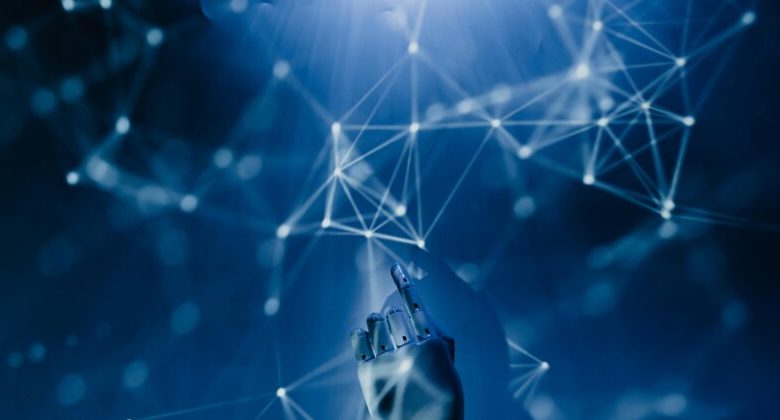How AI is Reshaping Job Roles and the Future of Work

We’re currently witnessing the profound influence of Artificial Intelligence (AI) on the labor force. This technological revolution is reshaping our work methods, fostering innovation, and driving growth. As we stand at the threshold of the future of work, it is our collective responsibility to ensure that this shift empowers individuals and companies to thrive.
As we approach a new era, it is crucial to comprehend AI’s impact on work positions and how we may proactively adapt to these transformations. Workforce transformation is not merely a buzzword; it is an imperative. The essential factors in managing this shift are reskilling, upskilling, and promoting significant collaboration between people and AI.
The Evolving Nature of Employment Roles
While it’s true that AI is automating repetitive tasks, it’s important to note that this is not a threat to human employment. Rather, it’s a strategic move to enhance human potential. Future job roles will flourish by leveraging human strengths such as creativity, critical thinking, emotional intelligence, and management.
It’s clear that reskilling and upskilling initiatives can have a significant impact on both organizations and individuals. Businesses must equip their workforce with the skills needed to navigate these changes. Job roles will evolve, and professionals must embrace this evolution. AI doesn’t eliminate opportunities; it presents a unique chance for humans to focus on their strengths—innovation, empathy, and strategy.
Case Study: AI in the Gambling Industry
Whether it’s a sweepstakes casino offering promo codes like those found here or a real- money establishment, the convergence of artificial intelligence (AI) with the gambling sector signifies a crucial juncture in the advancement of gaming and wagering. As AI progresses, its applications in this area generate unparalleled personalization, efficiency, and security prospects. This connectivity increases user experience and redefines operating models for casino operators and sports betting platforms.
The importance of AI in gambling transcends novelty; it represents a significant transformation in data analysis, decision-making processes, and user interaction with gaming systems. AI is leading innovation in the gambling industry by utilizing advanced algorithms for predictive analytics and employing machine learning for fraud detection. The future of gambling increasingly depends on artificial intelligence as we explore AI-driven analytics, customized gaming experiences, and enhanced security protocols.
Changing Skill Demands
As AI progresses and automates repetitive activities, the competencies necessary for worker success are experiencing a substantial transformation. Although technical AI competencies like machine learning, natural language processing, and computing are essential, there is a growing focus on distinctive human capabilities that AI cannot readily imitate.
Soft skills, particularly those related to interpersonal communication, emotional intelligence, and adaptability, are becoming increasingly valuable. As AI takes on data-driven tasks, human roles are evolving towards those that require empathy, understanding, and the ability to interact effectively with both human and machine counterparts. Moreover, creativity, critical thinking, and problem-solving skills are in high demand, as they empower employees to innovate, make informed decisions, and tackle the complex challenges presented in an AI-driven work environment.
Furthermore, the swift advancement of technology requires a dedication to ongoing education and skill enhancement. Employees must take the initiative to enhance their AI literacy and remain informed about the newest developments in the domain. This encompasses not only the acquisition of technical skills but also the development of a profound comprehension of the ethical ramifications of AI and the capacity to engage with AI systems responsibly and impartially.
The evolving skill demands in the AI era necessitate a distinctive combination of technical proficiency and uniquely human attributes. Individuals who can proficiently connect AI with human intelligence while consistently adapting and enhancing their skills will be optimally positioned to succeed in the swiftly changing employment landscape.
Equipping the Workforce for the AI Epoch
As artificial intelligence progresses and automates repetitive tasks, the competencies necessary for success in the labor market are seeing a substantial transformation. Although technical AI competencies like machine learning, natural language processing, and engineering are essential, there is a growing focus on distinct human capabilities that AI cannot readily imitate.
The rapid advancement of technology necessitates a commitment to continuous learning and skill enhancement. Employees must take the initiative to improve their AI literacy and stay informed about the latest developments in the field. This includes not only acquiring technical skills but also developing a deep understanding of the ethical implications of AI and the ability to engage with AI systems in a responsible and unbiased manner.
Ethical Implications and Obstacles
As AI increasingly integrates into the workplace, it is essential to consider the ethical ramifications and the issues that may emerge. A primary challenge is guaranteeing equity and alleviating prejudice in AI systems. If AI algorithms are educated on biased data or embody the preconceptions of their developers, they may perpetuate discriminatory practices in recruitment, advancement, and decision-making. Organizations must prioritize creating transparent, accountable, and engineered AI systems to foster fairness and diversity.
Another ethical dilemma is the possibility of job displacement and the exacerbation of income disparity. Although AI has the capacity to generate new positions and prospects, it may also automate specific jobs, especially those that entail repetitive work. Organizations and legislators must actively tackle these issues by assisting people during transitions, offering upskilling and reskilling programs, and enacting regulations that foster inclusive growth while alleviating the adverse effects of automation.
The Future of AI in the Workplace
AI and humans will have a symbiotic relationship in the future of work, where technology enhances and complements human abilities rather than completely replacing them. To succeed in the AI-driven age, employees must develop a distinctive combination of technical proficiency and essential human qualities. At the same time, organizations must promote a culture of ongoing learning, flexibility, and innovation.
By proactively equipping the workforce for the AI era, we can harness this technology’s revolutionary potential while alleviating its dangers and obstacles. This necessitates a unified effort from individuals, companies, and legislators to invest in upskilling projects, advocate for ethical AI development, and establish inclusive pathways for workers to thrive in future employment.
The future may be ambiguous, yet by accepting change, emphasizing human potential, and judiciously utilizing AI, we can cultivate a work environment that is both efficient and satisfying for everyone.




